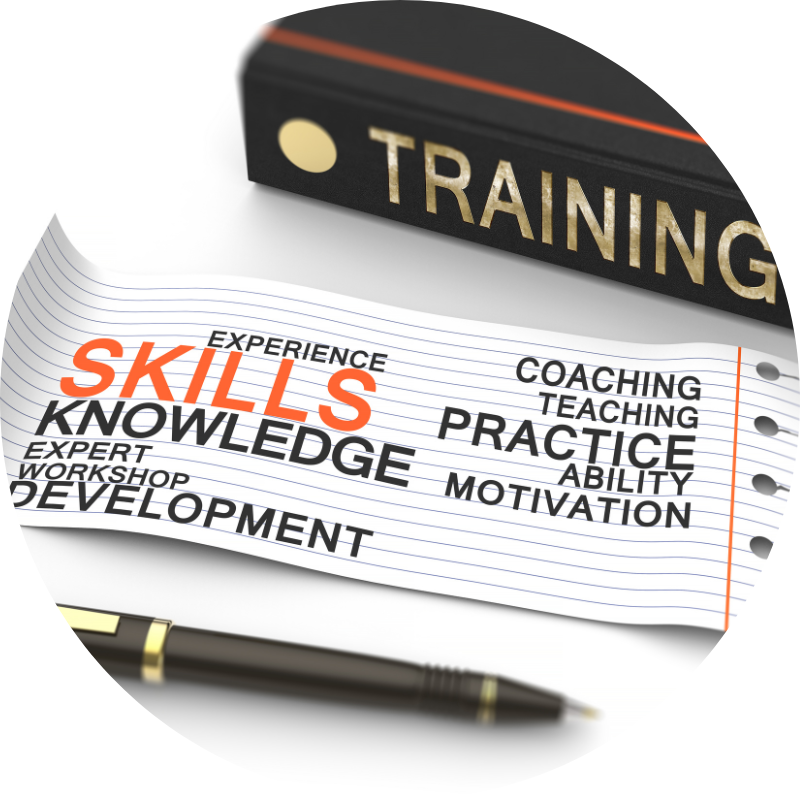 Nurturing excellence within your organization through empowered employee learning and development is a strategy and best practice that fosters a culture of continuous learning and professional growth among your workforce. A well organized approach and team-wide commitment improves recruitment, retention, succession planning and defines a path of success for employees through increased job skills, pay scale and promotion opportunities.
Nurturing excellence within your organization through empowered employee learning and development is a strategy and best practice that fosters a culture of continuous learning and professional growth among your workforce. A well organized approach and team-wide commitment improves recruitment, retention, succession planning and defines a path of success for employees through increased job skills, pay scale and promotion opportunities.
Implementing an Employee Development program takes some planning, proper execution, and ongoing management. Read more for a few fundamentals to consider and get started.
Cultivate a Culture of Learning – Create an environment where learning is not just a one-time event but an integral part of your organization’s operations. Explore the benefits of a learning culture with the management team and the vital role they play in promoting it.
Design Effective Learning Programs – Craft impactful learning and development initiatives based on the organization’s needs, general aspirations of the employees, and identify areas where succession planning or expansion are needed. From identifying these interests and skill gaps, management is able to create the appropriate training method, communications that will resonate with the employees, and set measurable results.
Harness the Power of Technology – Technology plays a pivotal role in learning and development. Review the latest trends and innovations that apply to your organization’s industry. Several e-platforms offer self-driven learning and include elements such as quizzes and games to make the process fun and engaging. Some positions may require an applied learning strategy whereby employees actually need to physically do the work in order to learn. In this case, an important step is to identify those existing employees who can work with others to train, develop and provide feedback.
Foster Employee Empowerment – Empowered employees are engaged and motivated to excel. By implementing an employee development program with self-directed learning, organizations provide a sense of ownership and convey a dedicated interest in the employees’ professional growth.
Leverage Mentorship and Coaching – Mentorship and coaching programs can be transformational to an organization by unlocking the teams’ full potential. Build mentoring relationships between experienced employees and new recruits; enlist subject matter experts to coach colleagues up to not only expand their knowledge, but to also improve their overall contributions to the organization’s strategic goals.
Measure the Learning Impact – It is essential to measure the impact of your organization’s learning and development efforts. Be sure to have an evaluation method in place, data-driven intel to make informed decisions, and establish key performance indicators to assess the effectiveness of your program…and how to continuously improve it.
As your organization embarks on the journey to nurture growth and excellence within your organization, or enhance an existing program, keep your goals in mind. Creating a workplace where empowered employees thrive and your organization achieves new heights of success through continuous learning and development is beneficial for everyone.
SDP payroll professionals assist our clients with payroll, workforce management, benefits administration, and human resources needs. To get started or learn more about these solutions, simply contact us today.
And, for more information about Southland Data Processing, call us today at 909.946.2032. Or, click here and Let’s Talk!
For the latest updates, follow us on LinkedIn, Facebook, Twitter, YouTube, Instagram and TikTok for even more business tips and news.
*Southland Data Processing, Inc. (“SDP”) is not a law firm. This article is intended for informational purposes only and should not be relied upon in reaching a conclusion in a particular area of law. Applicability of the legal principles discussed may differ substantially in individual situations. Receipt of this or any other SDP materials does not create an attorney-client relationship. SDP is not responsible for any inadvertent errors that may occur in the publishing process.

